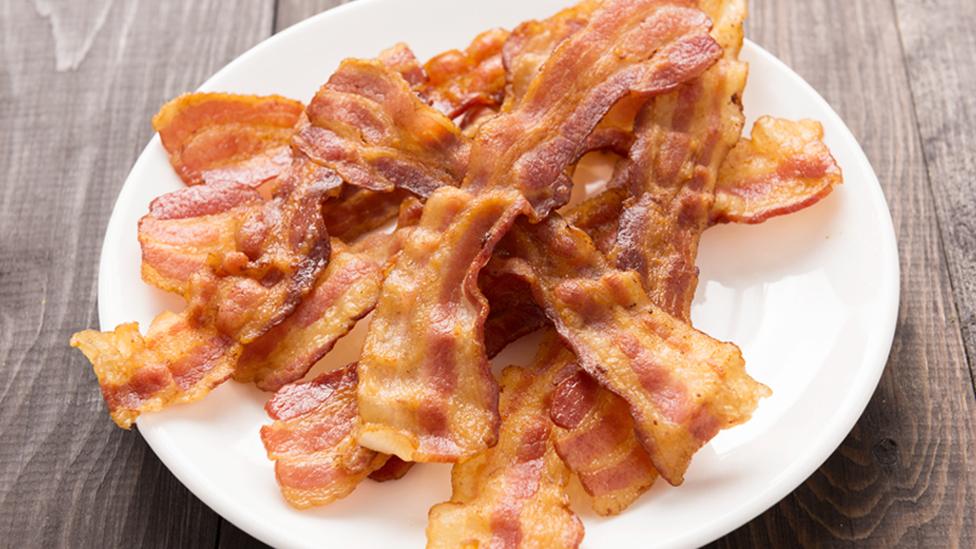Frankenchicken, farming and the cost of living crisis
- Published
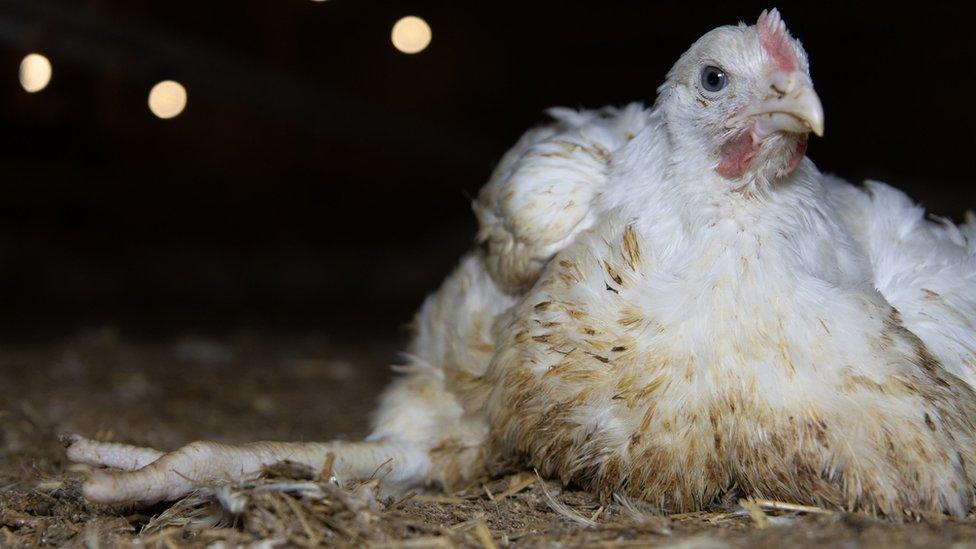
Open Cages secretly recorded chickens and claimed they were malformed and unable to eat or drink, although the operators said the site had passed an inspection by the Red Tractor Assurance Scheme
My phone pings and it's another link to hours of undercover filming.
This will be the third night in a row I'm sitting at my desk, coffee in hand, scrolling through footage.
After 10 years as a rural affairs correspondent, I'm familiar with being sent secretly filmed videos from inside farms.
But the volume I'm getting is new. As is the nature. In the past, pictures would only highlight illegality or the abuse of animals. Now it's showing common practices, which are legal.
They all tell the same story, overcrowded poultry sheds, deformed limbs and high numbers of deaths.
We think it's the right time to tell the story of how the UK became home to millions of "Frankenchickens".
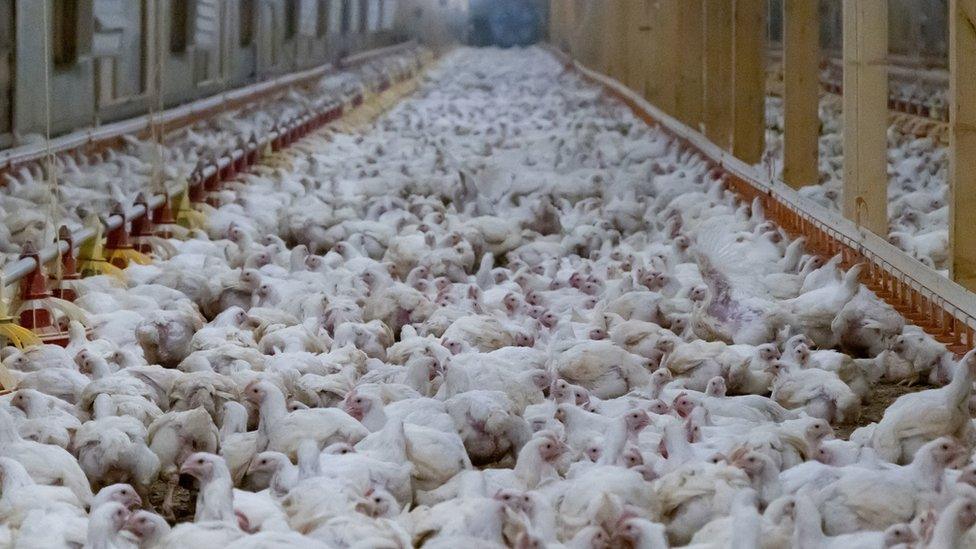
This image was secretly taken by Open Cages in Lincolnshire in 2022. The operator said no welfare issues were found in an inspection by the Red Tractor Assurance Scheme
What are 'Frankenchickens'?
The term "Frankenchicken" was coined by animal welfare campaigners to describe genetically selected, fast-growing breeds.
According to Kate Parkes, a poultry expert at the RSPCA, the standard organic chicken grows to its weight for slaughter in 81 days. In fast-growing breeds it's just 35 days.
Ms Parkes said the most commonly used fast-growing breed is the Ross 308.
The Eating Better Alliance (which comprises organisations including the RSPCA, WWF and Friends of the Earth) claims 850 million chickens are reared for meat in the UK each year.
Of those, 95% are said to be reared in intensive indoor units.
The Department of Environment, Food and Rural Affairs (Defra) states England produces 90 million chickens a month.
As with many things, the demand dictates what our supply chain looks like.
What constitutes cheap is subjective, but there's no denying that depending on where you shop, the price of a chicken is roughly the same as a takeaway coffee, making the meat a popular staple for many households.
According to an Eating Better Alliance report, poultry overtook red meat sales for the first time in 2017. It now accounts for more than 50% of overall meat consumption.
'We grow healthy chicken'
BBC Look North was granted access to a so-called Frankenchicken business in Yorkshire.
Fearing reprisals from extremists, the farmer - who we are only naming as Will - agreed to an interview on condition the name of his family-run farm and its location was not shared.
Showing us around his sheds, Will - who used the term Frankenchicken himself - clearly wanted to show the farmers' side.
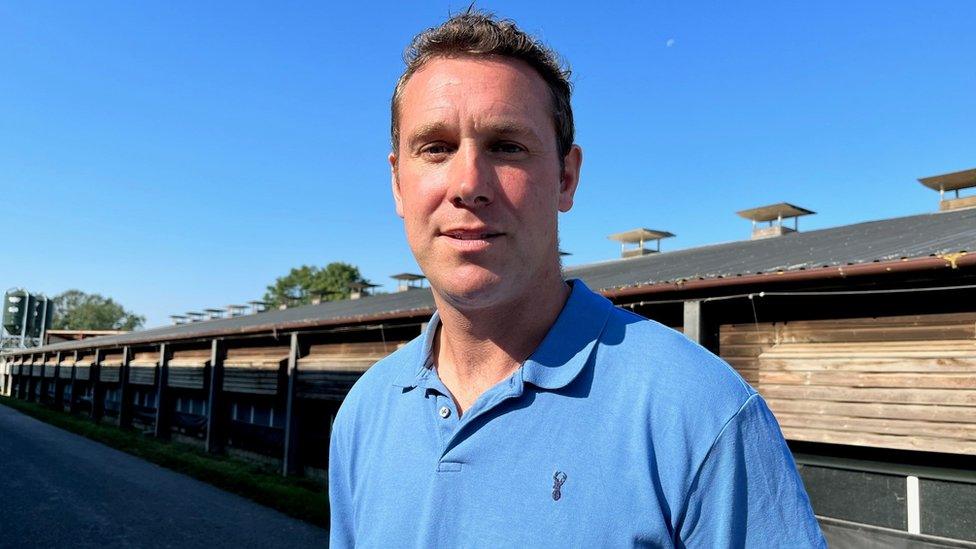
Yorkshire farmer Will showed us around his chicken sheds, insisting the welfare of his birds was at the forefront of his mind
"I only want my birds to be healthy and happy," he said.
"I've done this for 20 years, 365 days a year, I could not - without doubt - work in an industry where I thought the animals I was producing were suffering."
Will explained there were 37,000 chickens on his farm. All were 13 days old and weighed roughly half a kilo, he said. When they are 35 days old and 2.2 kilos, they will be slaughtered.
None of the secretly filmed footage seen by the BBC was recorded on Will's premises. He told us he was aware of the footage but felt it did not represent the industry as a whole.
He claimed "the majority of farms are adhering to all the rules" and said he was constantly "evolving and improving" welfare standards.
"We are growing healthy chickens."
Challenged on his decision to rear "Frankenchickens" and not free-range birds, he replied: "It's consumer demand that drives what we grow in the sheds."
If more people wanted free-range chickens he "wouldn't have any problems moving towards that system", he said.
For Will, the industry is market-led and farmers "are being told to produce a standard bird."
Will added that producers were "price-takers, not price-makers", with supermarkets and processors dictating what was paid.
He also thinks the demand for cheap chicken is "being driven by the cost of living crisis".
Why are some people against 'Frankenchickens'?
Ms Parkes said these breeds are selected to grow "very, very quickly". As a result, she said, birds suffer from "a number of health and welfare conditions", such as lameness and leg blistering.
Describing the issue as "a massive problem", she said these birds can "potentially suffer from heart attacks".
"They generally spend most of their time either sitting or eating," she told us. "It's not much of a life."
Ms Parkes conceded that most UK broiler chickens - those reared for meat - are given access to "some kind of enrichment", for example perching or something to peck at.
But she added they are bred in "high stocking densities", meaning they are unable to "move freely to flap their wings" or show "natural behaviours".
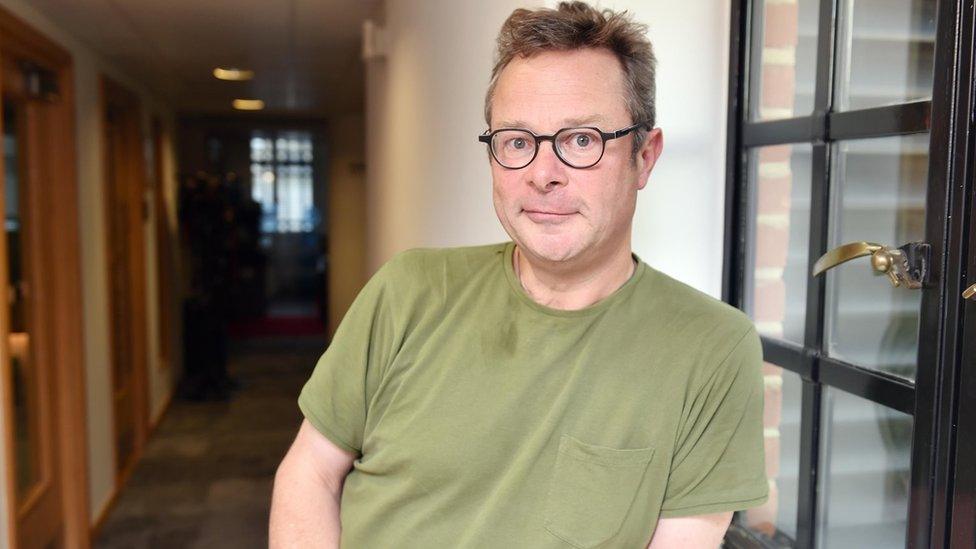
Hugh Fearnley-Whittingstall says people need to know the plight of Frankenchickens
But it's not just the RSPCA that has concerns.
Celebrity chef Hugh Fearnley-Whittingstall told Radio 4's Today programme: "They [Frankenchickens] have been bred to eat at an extraordinary rate so they put on this completely inappropriate weight gain just to get to market as quickly as possible."
He added: "People really need to know this is the standard life of way over 90% of the chicken we eat."
TV naturalist Chris Packham has called the practice "cruel beyond belief".
Campaign groups such as The Humane League UK and Open Cages condemn the use of fast-growing breeds to satisfy consumer demand.
In August, Open Cages said it secretly collected footage at three farms in Lincolnshire showing chickens in poor health between August and November 2022.
It claimed the pictures and videos showed deformed, injured and filthy birds. One of the farms told us that it had healthy, well-cared for birds, had been independently audited for welfare compliance three times in 14 months and complied with all legal standards.
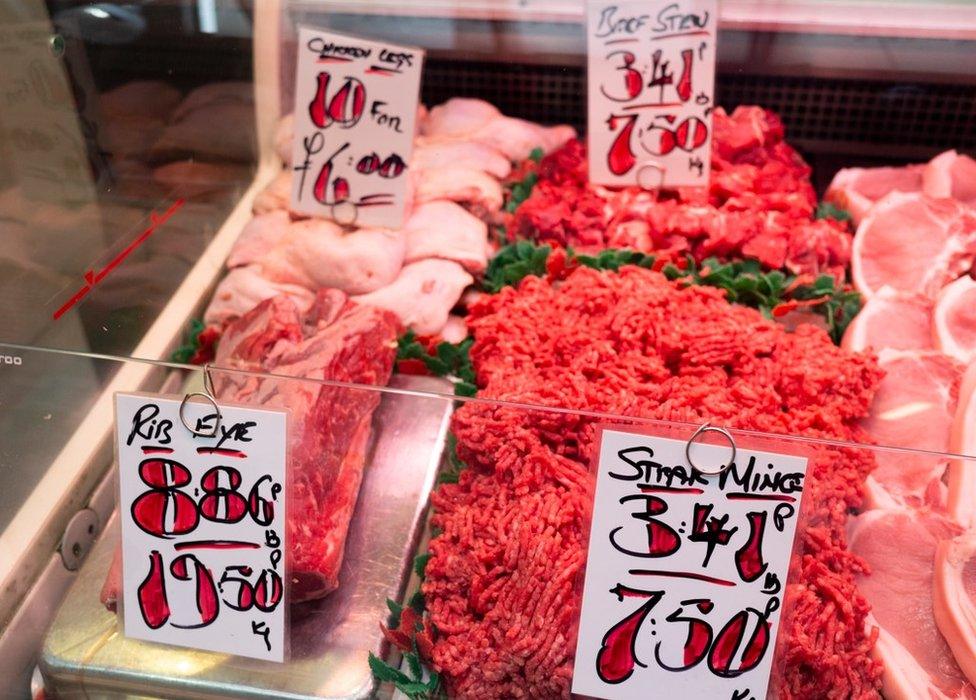
Poultry overtook red meat sales for the first time in 2017, according to the Eating Better alliance
Is growing Frankenchicken legal?
Yes. There is no suggestion producers are breaking the law. That said, there have been moves to put a stop to the practice.
In May a legal challenge, brought by animal charity The Humane League was dismissed in the High Court.
Animal welfare campaigners had claimed the genetically selected breeds suffered serious health problems.
The court assessed claims that the government had misinterpreted welfare regulations in allowing farming of these chickens.
The judge dismissed the case.
In a statement, Defra said it welcomed the High Court ruling, adding it showed the government "does not maintain unlawful policies or practices with regards to the keeping of fast-growing breeds of meat chickens for production".
It went on to say all farm animals are protected by "robust animal health and welfare legislation".
The Welfare of Farmed Animals (England) Regulations 2007 sets down detailed requirements on how farmed livestock, including meat chickens, should be kept, it said.
Any signs of change?
Possibly. In June, The Humane League UK filed an appeal against the High Court ruling. That appeal is due to be heard imminently.
Sean Gifford, the charity's managing director, asserted its "determination to fight for a better world for chickens is unyielding".
He said: "We think the court has made errors in its judgement, from failing to see the overwhelming scientific consensus that fast growing breeds of chicken suffer greatly, to suggesting widespread illness among Frankenchickens is lawful if only a few individuals in a flock remain healthy.
"We believe that this is not in keeping with the law. If this law doesn't apply to Frankenchickens, who have suffering coded into their DNA, then what on earth is it for?"
Defra said it did not comment on ongoing legal proceedings.
In the meantime, some restaurants and shops have signed up to the Better Chicken Commitment - a pledge to raise slower-growing birds and give them more space.
But there's a familiar catch - it's typically more expensive.
Additional reporting by Kevin Shoesmith

Follow BBC Yorkshire on Facebook, external, Twitter, external and Instagram, external. Send your story ideas to yorkslincs.news@bbc.co.uk, external.
Related topics
- Published24 May 2023
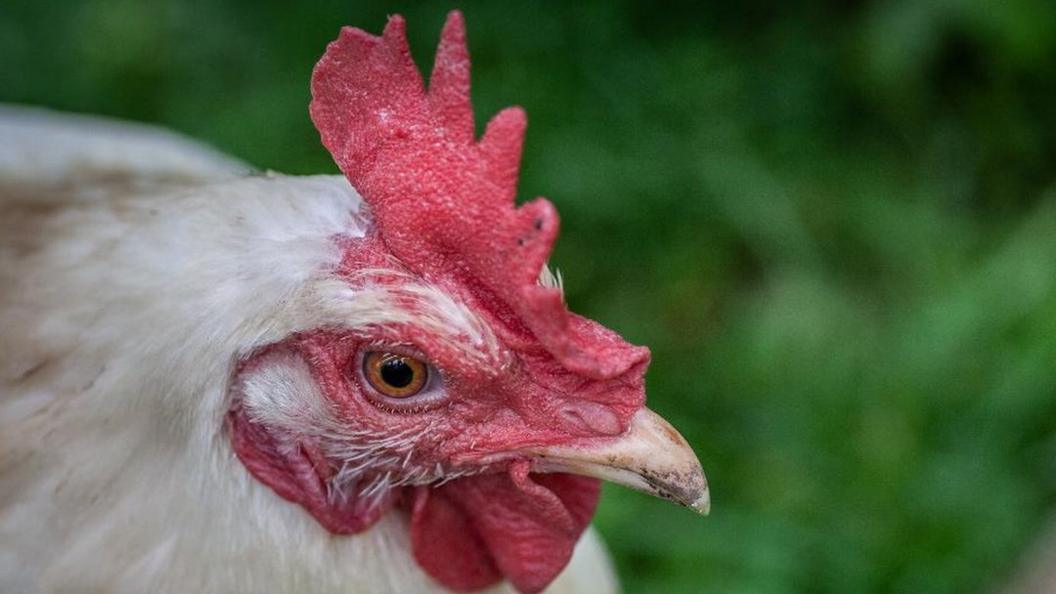
- Published9 October 2020
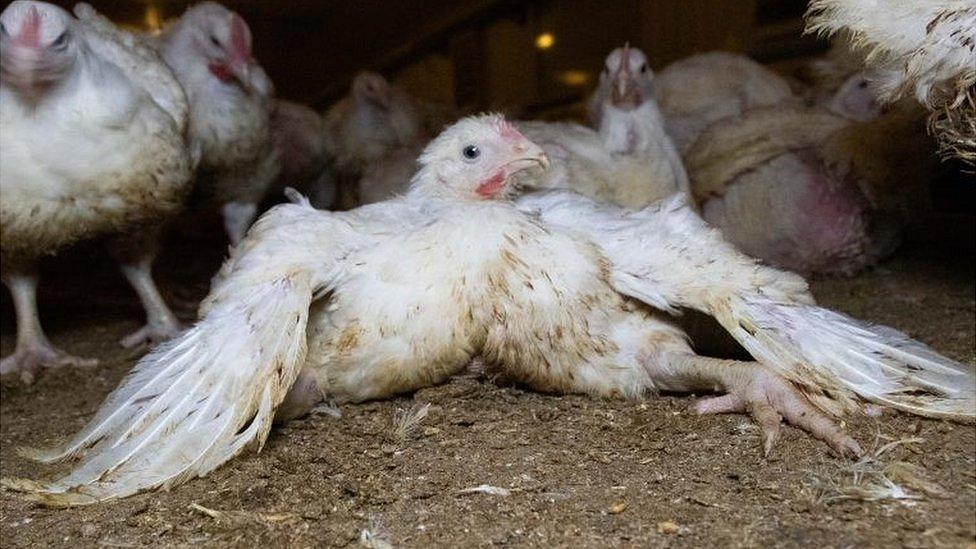
- Published17 April 2019
